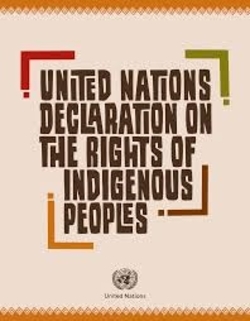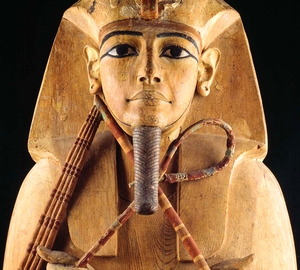How best to undermine Israel's legitimacy as a country? Simple, argue that it came into existence through "the theft of Palestine" and the expulsion of its people.
 Thus does a learned book carry the title The Ethnic Cleansing of Palestine and the Palestinian Authority (PA) holds that "Zionist gangs stole Palestine and expelled its people," then "established their state upon the ruins of the Palestinian Arab people." In all, this caused a catastrophe "unprecedented in history," no less.
Thus does a learned book carry the title The Ethnic Cleansing of Palestine and the Palestinian Authority (PA) holds that "Zionist gangs stole Palestine and expelled its people," then "established their state upon the ruins of the Palestinian Arab people." In all, this caused a catastrophe "unprecedented in history," no less.
International organizations, newspaper editorials, and faculty petitions pick up these accusations and spread them worldwide. For example, Independent Australia bemoans the historic "theft of Palestine" and the Australasian Muslim Times goes further, complaining about the "wholesale land theft of Palestine and Australia."
But is it true that Israel "stole Palestine"? No, it is false. Ironically, Israel emerged more peaceably than any other of the United Nations' 193 member states.
Reliance on force is the historic norm to the point that French philosopher Pascal Bruckner concludes that "No state is not founded on crime and coercion." Nearly always and everywhere, governments trace their existence to an invasion, rebellion, secession, revolution, or some other act of violence. Think the years 1776 (United States), 1796 (New South Wales), 1858 (India), 1871 (Germany). 1917 (the Soviet Union), 1949 (China), and 1979 (Iran). No country or government goes back to time immemorial, every people has roots elsewhere. "First peoples" are a political fable, not a historical reality.
 The United Nations believes in "indigenous peoples" |
The Middle East, because of its centrality and geography, experienced more than its share of invasions. These included the Greek, Roman, Arabian, Seljuk, Crusader, Timurid, Mongolian, Ottoman, and British. Within the region, dynastic froth caused the same territory – Egypt for example – often to be conquered and re-conquered. The great-grandfather of the current king of Jordan took power only in 1921; the current ruler of Syria did so in 2024.
The land that now makes up Israel fully shared in the region's invasions and migrations. Beside countless tribal raids and assaults by lesser despots, it suffered from notable invaders such as Pharaoh Ramses II, Alexander the Great, Caliph Umar ibn al-Khattab, King Richard the Lionheart, the Mongol Kitbuqa, the Ottoman Selim the Grim, Napoleon, British general Edmund Allenby, and Egypt's Gamal Abdel Nasser. Military historian John D. Hosler counts 20 attacks on Jerusalem between 614 and 1244, meaning one every 31.5 years, or about once each generation.
 Ramses II. |
In stark contrast to this turbulent legacy, Zionist efforts to build a Jewish homeland in the Holy Land between 1882 and 1948 stand out as commercial rather than military, and as astonishingly non-violent. Two mighty empires, the Ottomans and the British, ruled Eretz Yisrael (Hebrew: the Land of Israel) during this period; in contrast, Zionists lacked military power. They understood they could not achieve statehood the conventional way, through arms.
Instead, they purchased land. The heart of the Zionist enterprise consisted of buying up property, house by house, farm by farm, dunam by dunam (about 1,000 square meters). It founded the Jewish National Fund (JNF) in 1901 to purchase land in Palestine "to assist in the foundation of a new community of free Jews." The JNF – and not the Haganah, its clandestine defense organization founded in 1920 – served as Zionism's key institution.
 Ephraim Moshe Lilien produced an engraving for the Fifth Zionist Congress in Basel in 1901. The Hebrew inscription reads, "May our eyes behold your return in mercy to Zion. |
According to a 1952 calculation by former JNF head Abraham Granott, at the end of June 1947 Jews owned 1,850,000 dunams in Palestine. Of this total, they purchased about one million dunams from large Arab landowners, 500,000 dunams from farmers (fellaheen), 180,000 dunams from the British authorities, and 120,000 dunams from churches, foreign companies, and other institutions. The United Nations partition plan of 1947 included those dunams within the sovereign Jewish area.
Zionists invested massive efforts to rehabilitate barren and unused properties. They famously made the desert bloom, plus they drained swamps, cleared water channels, reclaimed wasteland, forested bare hills, cleared rocks, and removed salt from the soil.
On the British rulers' departure from Palestine in 1948, five Arab states immediately invaded, intent on crushing the new Jewish state and killing or expelling its Jewish inhabitants. Only then did Israelis take up the sword and win territory through military conquest. Their success increased Israel's land from the UN partition plan's allocation of 14,900 sq. km by 5,600 sq. km., an additional 38 percent. As the historian Efraim Karsh demonstrates in the book Palestine Betrayed, most Palestinians fled their lands voluntarily; exceedingly few were forced off.
Large-scale land purchases or deals are historically quite common: the Dutch famously (if unverifiably) purchased Manhattan for 60 guilders in 1626 and the Britain acquired Singapore through treaty in 1824. The United States bought and negotiated its way to the Pacific (Louisiana in 1803, Florida in 1819, Oregon in 1846, Guadalupe Hidalgo in 1848, Gadsden in 1853) and beyond (Alaska in 1867, the Philippines in 1898, Danish West Indies in 1917). But no country other than Israel ever came into existence by virtue of its future citizens quietly, peaceably buying land, one lot at a time.
Israel emerged out of the least violent and most civilized effort of any in history. "Gangs" did not steal Palestine; merchants purchased Israel.
Mr. Pipes is founder of the Middle East Forum and author of Israel Victory: How Zionists Win Acceptance and Palestinians Get Liberated (Wicked Son).